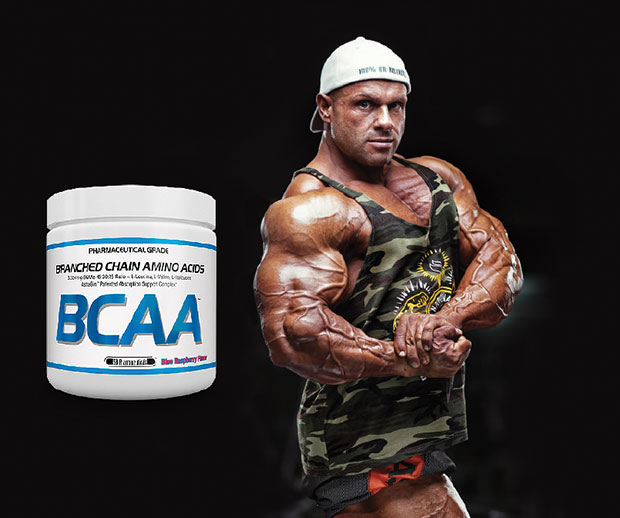Sports Medicine


How to Prevent Over-training Syndrome
Has your growth and strength decreased recently, despite your training harder than ever? If the answer is yes, excessive stress created through training, lifestyle, or both may be prohibiting proper recovery and growth. Stress is a natural component of life, and your body is capable of handling normal varying amounts. However, problems can arise when stress from training and life overloads the body, thus reducing growth and recovery. To fully understand how stress may affect performance, it’s important to define the different types of stress and their emotional and physiological effects.
What Is Stress to an Athlete?
Stress is a progressive overload that, when applied to a resistance-training program, causes a temporary decrease in function (strength), followed by an adaptation (increased strength and size). Generally, five different types of stress can affect the human body:
1. Physical stress or muscular effort of resistance (e.g., weight training). This type is the most important factor in athletic growth and strength.
"[O]vertraining is performing too many light sets for a particular body part which they call volume training [or] training too many days straight and not allowing the central nervous system enough time to recuperate." - John Cardillo, Canada's Premier Fitness Expert & Champion Bodybuilder
2. Mental stress/overload of mental or emotional activity (e.g., writing an exam or going through a divorce). This type impairs the ability to focus and handle a training routine.
3. Biochemical stress. This type can be created by a lack of vital nutrients, creating a deficiency within the body, or by excessive toxicity.
4. Thermal stress. This type of stress involves training in environments that are too cold or hot, decreasing the ability to train as hard as is desired
5. Electromagnetic stress. This type of stress is a relatively recent problem due to the increased use of computerized machinery, cellular telephones, creating electromagnetic pollution. Excessive electromagnetic pollution weakens the body and decreases its ability to handle any added stress.
Any one of these stressors is normally handled by the body; however, two or more may be considered “overstress” and can have a devastating effect on training results.

Effects of Overstress
When the body is overstressed, an alarm response is created, releasing high levels of stress hormones into the system, resulting in decreased anabolic growth and increased catabolism. Stress affects the anabolic hormone testosterone and the catabolic hormone cortisol. The goal of training is to keep anabolism levels high while keeping cortisol to a minimum. Studies show that high levels of cortisol cause muscle breakdown and allow oxygen to decrease cellular energy production (oxidation). Maintaining normal cortisol levels is referred to “anticatabolic,” as a total lack of cortisol would result in constant pain and the inability to produce energy when blood sugar levels are reduced. Difficulties arise when stress and cortisol levels remain high for extended times, as the anabolic
process is halted, resulting in athletic plateau or a decrease in growth and/or strength. Chronic stress due to training impairs normal adrenal cortisol production. It can take weeks or months to recover from this detrimental type of athletic stress.
There’s a continuum of training stress with the “window of optimal stress” at its centre. This optimal level of training is strenuous enough to produce growth while ensuring normal levels of cortisol and muscle tissue degradation. As training becomes harder, a shift from growth into a zone of maximum stress and growth will slow due to the increase in cortisol. Additionally, chronically high levels of cortisol predispose an individual to insulin resistance and increase body fat deposition, particularly in the abdominal region.

Two-Step Overstress Reversal Process
1. Reduce Training Intensity and Frequency
Discontinue all training for at least one week to allow full recovery. Reassess condition using the Training Stress Level Questionnaire. Improvement is characterized by a lack of muscular pain, a reduction in resting heart and blood pressure rates, and score results in the Mild to Moderate ranges.
2. Improve Stress Management & Recovery Potential.
Reduce the potential for recreating the overstress condition by improving diet, increasing nutritional supplementation, and incorporating holistic treatments and visualization techniques.
A) Diet: The easiest way to increase the body’s ability to manage stress is through dietary improvement, including frequent and adequate intake of carbohydrates, proteins, and fats. Consistent nutrient flow every three to four hours will ensure that growth is continued, and cortisol levels remain low because the need to convert your lean muscle into energy is minimized by the constant flow of nutrients from the diet.
B) Nutritional Supplementation: To maximize nutritional status, vitamin and mineral supplementation is necessary, improving the body’s ability to reduce cortisol production. Vitamins C, E, B5, and B6, beta-carotene, and the minerals zinc and selenium are essential to optimize status and are often lacking in the diet.
• Vitamin C is essential to maintain the adrenal glands, enhancing the body’s ability to produce steroids and fight inflammation due to strenuous training.
• Vitamin B5 (pantothenic acid) is known as the “stress vitamin” as it’s necessary for adrenal function and the formation of steroid hormones and cortisol. A B5 deficiency can produce adrenal cortical failure.
• Vitamin B6 (pyridoxine) is extremely important for adrenal hormone function. B6 can improve cortisol’s cell-binding ability, reducing inflammation due to training.
• Vitamins E and beta-carotene, along with the minerals zinc and selenium, function as antioxidants, thereby decreasing exercise-induced cortisol.
• Phosphatidylserine is an amino acid that can reduce exercise-induced cortisol formation. Studies have shown that phosphatidylserine can blunt the cortisol response. One to two grams before exercise along with an antioxidant can be a powerful anticatabolic pre-workout stack.
• Glutamine is an amino acid that prevents the loss of muscle tissue. In one study, rats that had high amounts of cortisol and glutamine injected into them prevented 70 percent of the loss of total muscle mass that would have occurred due to the cortisol injections. The authors stated that the glutamine seemed to downregulate the loss of protein in the muscle by the cortisol.

• Branched-chain amino acids (BCAAs) are helpful in preserving muscle mass with increased cortisol output. High levels of cortisol can cause intracellular amino acid oxidation, which is used for energy. BCAAs can help maintain muscle mass by keeping the protein turnover rate lower and thus decreasing catabolism. Some studies have also found that during exercise, a greater availability of BCAAs in muscle tissue could help maintain a more favourable ratio of testosterone to cortisol.
• Certain herbs have been found to be very effective in dealing with stress. One of the better known herbs is Panax ginseng (Korean or Chinese) and Siberian ginseng (Eleutherococcus senticosus). Both of these herbs are known as adaptogens, and they allow the body to handle more stress and support the central nervous system, cardiovascular and hormone systems. When taking any herbs, it’s important to use supplements that use standardized extracts (the active part to get the best effect). The dosage for the ginseng would be 75 milligrams once or twice a day, depending on the training stress level. Another powerful herb to help deal with training stress is licorice root (Glycyrrhiza glabra). Licorice root can bind to glucocorticoid receptors and counteract some of the physiological effects of excess levels of cortisol. Licorice root dosage can be 25 milligrams once or twice a day, depending on the level of stress.
The main point to remember is more is not better. We all have different levels of training stress we can handle. Gains slow down, stop, or even worse, regress. You need to get out of the gym sometimes. Use the supplements to help your body deal with the stress from training. They allow you to keep making gains in training without having to worry about overtraining and making less gains or getting injured.
Follow Ken on social media:
Twitter @kenkinakin
Instagram @kenkinakin
Facebook @drkenkinakin

